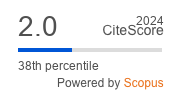The utilization and perceived usefulness of health care and other support services by people exposed to traumatic events related to the war in the Balkans
DOI:
https://doi.org/10.5644/ama2006-124.65Keywords:
Survivors of war, Support services utilization, PTSDAbstract
Objective. To explore which health care and other support services people exposed to traumatic events related to the war use, how helpful they perceive them in the course of their post-war adaptation and whether utilization and perceived usefulness depend on the mental health status of participants. Methods. A community sample of 3304 adults exposed to at least one war-related traumatic event was randomly selected in different regions in the former Yugoslavia. A specifically designed instrument, the Matrix for the Assessment of Community and Healthcare Services, was used to record service utilization and their perceived usefulness. The mental health status of participants was assessed using the Mini International Neuropsychiatric Interview. Results. Primary health care was the most frequently used type of service (80.5%). Services providing help with leisure activities, social support and social contacts were perceived as most helpful. Participants with current post-traumatic stress disorder used all types of health care services and employment support services significantly more often than participants without mental disorders and participants with other mental disorders. They were more satisfied with primary health care services than participants without mental disorders and less satisfied with financial and material support services as compared to participants with other mental disorders. Conclusions. The frequency of utilization of different types of services varies greatly in war affected communities. Medical services are widely used and therefore have a central role in the care provision following a war. Services providing help with leisure activities and social support are most appreciated and may be more widely established.Downloads
Published
17.05.2013
Issue
Section
Clinical Science
How to Cite
The utilization and perceived usefulness of health care and other support services by people exposed to traumatic events related to the war in the Balkans. (2013). Acta Medica Academica, 42(1), 4-14. https://doi.org/10.5644/ama2006-124.65





